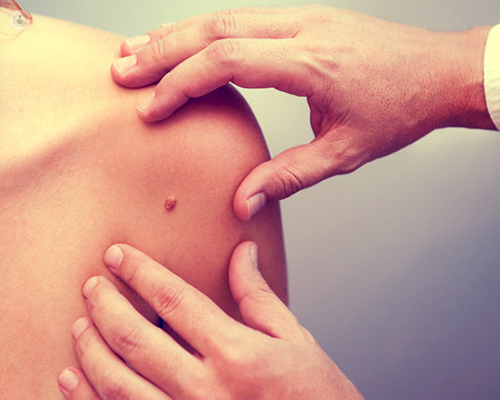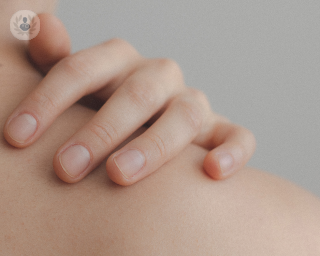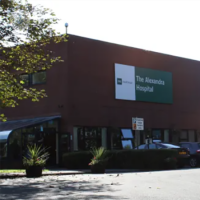What are cysts?
Cysts are closed sacs in the body’s tissue that may be filled with fluid, air, or other substances. They have a membrane, or “shell”, to divide them from the surrounding tissue, and the cells that make up this membrane are abnormal compared to the surrounding cells.
Cysts can appear almost anywhere on the body, including on bones, organs, and the skin. There are hundreds or types of cyst and many possible causes. Most cysts are benign, and some resolve on their own; others may require surgical removal, and a small proportion are cancerous.
What are the different types of cysts?
There are many types of cyst. The main ones include the following:
- cystic acne
- ganglion cyst
- ingrown hair cyst
- kidney cysts (e.g. polycystic kidney disease (PKD))
- liver cyst
- mucus cyst (mucocele)
- ovarian cyst
- pancreatic cyst
- sebaceous cyst
- tarlov cyst
What is the prognosis?
The vast majority of cysts are benign (non-cancerous) and do not cause many problems for patients. Many cysts simply go away on their own. However, if a cyst fails to resolve by itself, if it is causing particular discomfort or pain, or if its size and appearance bother the patient, it may require surgical removal, although this may also depend on the location of the cyst.
A small proportion of cysts are cancerous, with the sac being formed by the body as an immune response to try to contain the cancerous cells and prevent them from spreading. However, if the cancer already has its own blood supply, the cyst will be ineffective. It is important to have any cyst that does not disappear quickly checked out by a doctor and monitored to make sure it is not cancerous.

What are the main symptoms of cysts?
Cysts on the skin or close to it may be visible as lumps on the body. Cysts on the internal organs may be more difficult to spot, unless they cause symptoms such as pain in that area or affect the function of the organ. For example, kidney cysts caused by polycystic kidney disease (PKD) can lead to frequent urination or blood in the urine.
What causes cysts?
A number of things can lead to cysts, including blocked ducts or glands, infections, inherited conditions, chronic inflammation, parasites, injuries, and tumours.
How are cysts treated?
The treatment will depend on the type, size, and location of the cyst. Some common treatments include:
- draining the fluid or other material from the cyst using a syringe
- medication to reduce inflammation in the cyst
- surgery to remove the cyst (usually as a last resort for persistent cysts or if the cyst is cancerous)

What type of specialist treats cysts?
Cysts can be treated by doctors and surgeons from a number of different specialties, depending on the type and location of the cyst. For example, sebaceous cysts and other cysts affecting the skin may be treated by a dermatologist, while ovarian cysts may be treated by an obstetrician/gynaecologist.
What can happen if my cyst becomes infected?
If a cyst becomes infected, it can become sore and red, and may develop into an abscess (filled with pus).
What happens if a cyst ruptures on its own?
In the event that a cyst ruptures on its own, the cyst will begin to leak, which will eventually lead to the surrounding skin becoming infected.
When should you seek medical attention for a cyst?
Patients are advised to seek medical help if they notice that their cyst becomes very painful and/or inflamed.
10-15-2018 03-29-2023Cysts
What are cysts?
Cysts are closed sacs in the body’s tissue that may be filled with fluid, air, or other substances. They have a membrane, or “shell”, to divide them from the surrounding tissue, and the cells that make up this membrane are abnormal compared to the surrounding cells.
Cysts can appear almost anywhere on the body, including on bones, organs, and the skin. There are hundreds or types of cyst and many possible causes. Most cysts are benign, and some resolve on their own; others may require surgical removal, and a small proportion are cancerous.
What are the different types of cysts?
There are many types of cyst. The main ones include the following:
- cystic acne
- ganglion cyst
- ingrown hair cyst
- kidney cysts (e.g. polycystic kidney disease (PKD))
- liver cyst
- mucus cyst (mucocele)
- ovarian cyst
- pancreatic cyst
- sebaceous cyst
- tarlov cyst
What is the prognosis?
The vast majority of cysts are benign (non-cancerous) and do not cause many problems for patients. Many cysts simply go away on their own. However, if a cyst fails to resolve by itself, if it is causing particular discomfort or pain, or if its size and appearance bother the patient, it may require surgical removal, although this may also depend on the location of the cyst.
A small proportion of cysts are cancerous, with the sac being formed by the body as an immune response to try to contain the cancerous cells and prevent them from spreading. However, if the cancer already has its own blood supply, the cyst will be ineffective. It is important to have any cyst that does not disappear quickly checked out by a doctor and monitored to make sure it is not cancerous.

What are the main symptoms of cysts?
Cysts on the skin or close to it may be visible as lumps on the body. Cysts on the internal organs may be more difficult to spot, unless they cause symptoms such as pain in that area or affect the function of the organ. For example, kidney cysts caused by polycystic kidney disease (PKD) can lead to frequent urination or blood in the urine.
What causes cysts?
A number of things can lead to cysts, including blocked ducts or glands, infections, inherited conditions, chronic inflammation, parasites, injuries, and tumours.
How are cysts treated?
The treatment will depend on the type, size, and location of the cyst. Some common treatments include:
- draining the fluid or other material from the cyst using a syringe
- medication to reduce inflammation in the cyst
- surgery to remove the cyst (usually as a last resort for persistent cysts or if the cyst is cancerous)

What type of specialist treats cysts?
Cysts can be treated by doctors and surgeons from a number of different specialties, depending on the type and location of the cyst. For example, sebaceous cysts and other cysts affecting the skin may be treated by a dermatologist, while ovarian cysts may be treated by an obstetrician/gynaecologist.
What can happen if my cyst becomes infected?
If a cyst becomes infected, it can become sore and red, and may develop into an abscess (filled with pus).
What happens if a cyst ruptures on its own?
In the event that a cyst ruptures on its own, the cyst will begin to leak, which will eventually lead to the surrounding skin becoming infected.
When should you seek medical attention for a cyst?
Patients are advised to seek medical help if they notice that their cyst becomes very painful and/or inflamed.


Epididymal cysts: When is surgery needed to remove growths in the scrotum?
By Mr Mark Cynk
2024-11-21
An epididymal cyst is a fluid-filled growth that forms in the epididymis, the tube located on the upper testicle (in the scrotum). Although non-cancerous and generally painless, surgery for the removal of an epididymal cyst may be recommended. Mr Mark Cynk, highly experienced consultant urological surgeon, provides an expert insight into epididymal cyst surgery. See more


What are lipomas and how can they be removed?
By Miss Sujatha Tadiparthi
2024-11-21
Lipomas are soft, painless lumps that grow slowly under the skin. While they don't normally cause any harm, they tend to grow larger and you may choose to have one removed to feel less self-conscious of the unsightly swelling. Miss Sujatha Tadiparthi, a leading plastic surgeon based in Surrey, Kent and London, explains what they are and what to expect when you undergo a lipoma removal procedure. See more


Skin cysts – should I be worried?
By Mr Alastair MacKenzie Ross
2024-11-21
Cysts can come in all shapes and sizes and can appear all over the body. What are these strange lumps? Should you be worried about them? What are the differences between them? Leading plastic surgeon Mr Alastair MacKenzie Ross lends us his insight into the world of skin cysts. See more


Lipoma vs. cyst: how to spot the difference
By Dr Dev Shah
2024-11-21
Both lipomas and cysts can feel quite similar during their early stages, but would you be able to spot the difference? One of our leading dermatologists Dr Dev Shah explains how to recognise both and how they can be healed. See more
Experts in Cysts
-
Mr Ashfaq Khan
Obstetrics & gynaecologyExpert in:
- Colonoscopy
- Human papillomavirus (HPV)
- Abnormal smear test
- Polycystic ovary syndrome (PCOS)
- Postmenopausal bleeding
- Cysts
-
Mr Thomas Satyadas
SurgeryExpert in:
- Gallbladder surgery
- Hernia
- Liver cancer
- Pancreatic cancer
- Minimal access surgery (keyhole surgery)
- Cysts
-
Mr Patrick Gillespie
Plastic surgeryExpert in:
- Warts
- Carpal tunnel syndrome
- Dupuytren’s contracture
- Skin cancer
- Cysts
- Hand arthritis
-
Professor Julia Scarisbrick
DermatologyExpert in:
- Skin cancer
- Lymphoma
- Acne
- Skin cancer diagnosis
- Cysts
- Moles
-
Mr Deep J Malde
SurgeryExpert in:
- Gallbladder surgery
- Liver cancer
- Pancreatic cancer
- Pancreatitis
- Cysts
- Neuroendocrine tumours
- See all

Harley Street Gynaecology
Harley Street Gynaecology
25 Harley Street
No existe teléfono en el centro.
By using the telephone number provided by TOP DOCTORS, you automatically agree to let us use your phone number for statistical and commercial purposes. For further information, read our Privacy Policy
Top Doctors

The Alexandra Hospital - part of Circle Health Group
The Alexandra Hospital - part of Circle Health Group
Mill Ln, Cheadle
No existe teléfono en el centro.
By using the telephone number provided by TOP DOCTORS, you automatically agree to let us use your phone number for statistical and commercial purposes. For further information, read our Privacy Policy
Top Doctors

Derma Reading
Derma Reading
Shepherds Hill, Woodley, RG6 1FE
No existe teléfono en el centro.
By using the telephone number provided by TOP DOCTORS, you automatically agree to let us use your phone number for statistical and commercial purposes. For further information, read our Privacy Policy
Top Doctors
-
Harley Street Gynaecology
25 Harley Street, W1G Marylebone LondonExpert in:
- Endocrinology
- Obstetrics and Gynaecology
- Women’s health
- Menopause
- Vaginal problems
- Sexual health
-
The Alexandra Hospital - part of Circle Health Group
Mill Ln, Cheadle, CheadleExpert in:
- Hip
- Cardiology
- Shoulder and elbow
- Paediatrics
- Foot and ankle
- Knee
-
Derma Reading
Shepherds Hill, Woodley, RG6 1FE, ReadingExpert in:
- Acne
- Skin Cancer
- Paediatric Dermatology
- Moles
- Aesthetic Medicine
- Hair loss
- Most viewed diseases, medical tests, and treatments
- CAR-T cells
- PGT-A
- PGT-M
- Ovulatory disorders
- Fertility preservation
- Tubal factor infertility
- Female infertility
- Surrogacy
- Menopause support
- Hormone therapy








